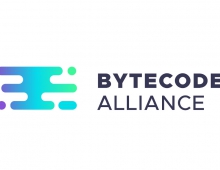
Mozilla and Samsung Collaborate on New Web Browser Engine
Mozilla Research has recently begun collaborating with Samsung on an advanced technology Web browser engine called Servo.
According to Brendan Eich, CTO, Mozilla, Servo is an attempt to rebuild the Web browser from the ground up on modern hardware. This means addressing the causes of security vulnerabilities while designing a platform that can fully utilize the performance of tomorrow's massively parallel hardware. To those ends, Servo is written in Rust, a new, safe systems language developed by Mozilla along with a community of enthusiasts.
Mozilla and Samsung are bringing both the Rust programming language and Servo, the experimental web browser engine, to Android and ARM. Samsung has already contributed an ARM backend to Rust and the build infrastructure necessary to cross-compile to Android, along with many other improvements. You can try this now by downloading the code from Github.
Rust, which today reached v0.6, has been in development for several years and is approaching stability. It is intended to fill many of the same niches that C++ has over the past decades, with efficient high-level, multi-paradigm abstractions, and offers precise control over hardware resources. But beyond that, it is *safe by default*, preventing entire classes of memory management errors that lead to crashes and security vulnerabilities. Rust also features lightweight concurrency primitives that make it easy for programmers to leverage the power of the many CPU cores available on current and future computing platforms.
Mozilla plans to complete the first major revision of Rust next year - cleaning up, expanding and documenting the libraries, building out tools and beefing up performance.
Mozilla and Samsung are bringing both the Rust programming language and Servo, the experimental web browser engine, to Android and ARM. Samsung has already contributed an ARM backend to Rust and the build infrastructure necessary to cross-compile to Android, along with many other improvements. You can try this now by downloading the code from Github.
Rust, which today reached v0.6, has been in development for several years and is approaching stability. It is intended to fill many of the same niches that C++ has over the past decades, with efficient high-level, multi-paradigm abstractions, and offers precise control over hardware resources. But beyond that, it is *safe by default*, preventing entire classes of memory management errors that lead to crashes and security vulnerabilities. Rust also features lightweight concurrency primitives that make it easy for programmers to leverage the power of the many CPU cores available on current and future computing platforms.
Mozilla plans to complete the first major revision of Rust next year - cleaning up, expanding and documenting the libraries, building out tools and beefing up performance.





















